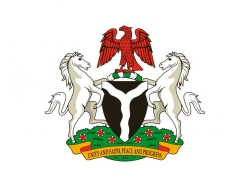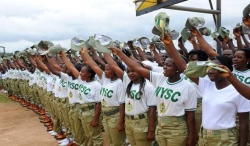
Jigawa State, located in the northwestern region of Nigeria, is one of the country’s emerging economic zones, with a deep-rooted cultural identity, vast agricultural potential, and steadily improving infrastructure. Created on August 27, 1991, from the old Kano State, Jigawa has grown into a vibrant entity with a unique administrative structure comprising 27 Local Government Areas (LGAs).
These LGAs serve as the foundation for grassroots governance and development. They are responsible for delivering essential public services, promoting agricultural and educational initiatives, and preserving local customs and traditions.
In this article, we explore the complete list of all 27 LGAs in Jigawa State, including detailed profiles, headquarters, economic strengths, and key features of each local government area.
Quick Facts About Jigawa State
-
Capital: Dutse
-
Slogan: “The New World”
-
Date of Creation: August 27, 1991
-
Region: North-Western Nigeria
-
Number of LGAs: 27
-
Major Ethnic Groups: Hausa, Fulani
-
Main Languages: Hausa, Fulfulde, English
-
Key Economic Activities: Agriculture, livestock farming, fishing, commerce
-
Bordering States: Kano, Bauchi, Yobe, Katsina
-
International Border: Niger Republic
Full List of LGAs in Jigawa State
Below is a full list of all 27 LGAs in Jigawa State, along with their administrative headquarters:
| S/N | LGA Name | Headquarters |
|---|---|---|
| 1 | Auyo | Auyo |
| 2 | Babura | Babura |
| 3 | Biriniwa | Biriniwa |
| 4 | Birnin Kudu | Birnin Kudu |
| 5 | Buji | Buji |
| 6 | Dutse | Dutse |
| 7 | Gagarawa | Gagarawa |
| 8 | Garki | Garki |
| 9 | Gumel | Gumel |
| 10 | Guri | Guri |
| 11 | Gwaram | Gwaram |
| 12 | Gwiwa | Gwiwa |
| 13 | Hadejia | Hadejia |
| 14 | Jahun | Jahun |
| 15 | Kafin Hausa | Kafin Hausa |
| 16 | Kaugama | Kaugama |
| 17 | Kazaure | Kazaure |
| 18 | Kirikasamma | Kirikasamma |
| 19 | Kiyawa | Kiyawa |
| 20 | Maigatari | Maigatari |
| 21 | Malam Madori | Malam Madori |
| 22 | Miga | Miga |
| 23 | Ringim | Ringim |
| 24 | Roni | Roni |
| 25 | Sule Tankarkar | Sule Tankarkar |
| 26 | Taura | Taura |
| 27 | Yankwashi | Karkarna (Yankwashi) |
Detailed Overview of Each LGA in Jigawa State
Here is an in-depth look at each of the 27 Local Government Areas in Jigawa State:
1. Auyo
-
Headquarters: Auyo
-
Key Activities: Rice and fish farming
-
Geography: Lies within the Hadejia River basin
2. Babura
-
Headquarters: Babura
-
Notable: Shares a border with Niger Republic
-
Economy: Cross-border trade, livestock
3. Biriniwa
-
Headquarters: Biriniwa
-
Known For: Irrigation farming and rural development projects
-
Language: Hausa and Kanuri influences
4. Birnin Kudu
-
Headquarters: Birnin Kudu
-
Highlights: Oldest urban center in the state
-
Infrastructure: Tertiary institutions and historical sites
5. Buji
-
Headquarters: Buji
-
Agriculture: Millet, guinea corn, maize
-
Demography: Sparsely populated but agriculturally rich
6. Dutse
-
Headquarters: Dutse (State Capital)
-
Significance: Administrative, commercial, and political center
-
Institutions: Federal University Dutse, Government House
7. Gagarawa
-
Headquarters: Gagarawa
-
Economy: Subsistence farming and livestock
-
Climate: Semi-arid with low rainfall
8. Garki
-
Headquarters: Garki
-
Population: Densely populated
-
Markets: Rural trade in grains and beans
9. Gumel
-
Headquarters: Gumel
-
History: Ancient Emirate and trade route
-
Institutions: Gumel Emirate Council
10. Guri
-
Headquarters: Guri
-
Environment: Located in floodplain of Hadejia-Nguru wetlands
-
Occupations: Fishing and farming
11. Gwaram
-
Headquarters: Gwaram
-
Farming: Major maize and sorghum producing area
-
Social Structure: Traditional wards and clan settlements
12. Gwiwa
-
Headquarters: Gwiwa
-
Border: Near Katsina State
-
Infrastructure: Mostly rural with developing schools
13. Hadejia
-
Headquarters: Hadejia
-
Historical Importance: Ancient Hausa kingdom and emirate
-
Economy: Rice farming, fishing, trade hub
14. Jahun
-
Headquarters: Jahun
-
Major Crops: Groundnut, millet
-
Water Sources: River Jahun supports farming
15. Kafin Hausa
-
Headquarters: Kafin Hausa
-
Language: Hausa
-
Industries: Agro-processing and animal husbandry
16. Kaugama
-
Headquarters: Kaugama
-
Occupation: Animal rearing, local crafts
-
Culture: Strong Islamic heritage
17. Kazaure
-
Headquarters: Kazaure
-
Highlights: Emirate town and ancient trade post
-
Education: Home to Jigawa State Polytechnic
18. Kirikasamma
-
Headquarters: Kirikasamma
-
Economy: Wet-season farming, livestock markets
-
Social Life: Deep-rooted community systems
19. Kiyawa
-
Headquarters: Kiyawa
-
Crops: Sesame seeds, beans
-
Trade: Weekly rural markets attract buyers from neighboring towns
20. Maigatari
-
Headquarters: Maigatari
-
Bordering Country: Niger Republic
-
Activities: International livestock market, border trade
21. Malam Madori
-
Headquarters: Malam Madori
-
Reputation: Educational excellence in local schools
-
Agriculture: Irrigated rice and vegetables
22. Miga
-
Headquarters: Miga
-
Farming: Predominantly small-scale agriculture
-
Features: Lowland topography suitable for irrigation
23. Ringim
-
Headquarters: Ringim
-
Significance: One of the state's commercial centers
-
Industries: Weaving, pottery, modern retail markets
24. Roni
-
Headquarters: Roni
-
Occupations: Farming, textile weaving
-
Transport: Accessible road networks
25. Sule Tankarkar
-
Headquarters: Sule Tankarkar
-
Notable For: Cross-border commerce
-
Culture: Deep Fulani-Hausa traditions
26. Taura
-
Headquarters: Taura
-
Known For: Strong educational institutions
-
Crops: Tomatoes, onions, leafy vegetables
27. Yankwashi
-
Headquarters: Karkarna
-
Population: Rural and agrarian
-
Agriculture: Millet, cotton, beans
Strategic Importance of LGAs in Jigawa State
The local government areas in Jigawa State play an essential role in:
-
Agricultural Development – With over 70% of the population involved in farming.
-
Trade & Border Commerce – Especially in LGAs like Maigatari and Babura.
-
Cultural Preservation – Home to traditional emirates and historic kingdoms.
-
Education – With expanding infrastructure for primary, secondary, and tertiary institutions.
-
Public Health & Governance – Ensuring access to basic health care, sanitation, and services.
FAQs About Jigawa State LGAs
Q1: How many LGAs are in Jigawa State?
A: Jigawa State has 27 Local Government Areas.
Q2: What is the capital of Jigawa State?
A: Dutse.
Q3: Which LGAs in Jigawa share borders with Niger Republic?
A: Babura, Maigatari, and Sule Tankarkar.
Q4: Which LGA is the most urbanized in Jigawa State?
A: Dutse, followed by Hadejia and Kazaure.
Q5: What is the main source of income for most LGAs in Jigawa?
A: Agriculture and animal husbandry.
Conclusion
Jigawa State’s 27 LGAs reflect a rich tapestry of culture, trade, governance, and agricultural potential. Whether it's the bustling cross-border markets of Maigatari or the serene farmlands of Buji, each LGA offers something unique that drives the state's overall development.
For investors, policymakers, NGOs, and scholars, understanding these LGAs is key to unlocking the economic and social opportunities in "The New World" – Jigawa State.

